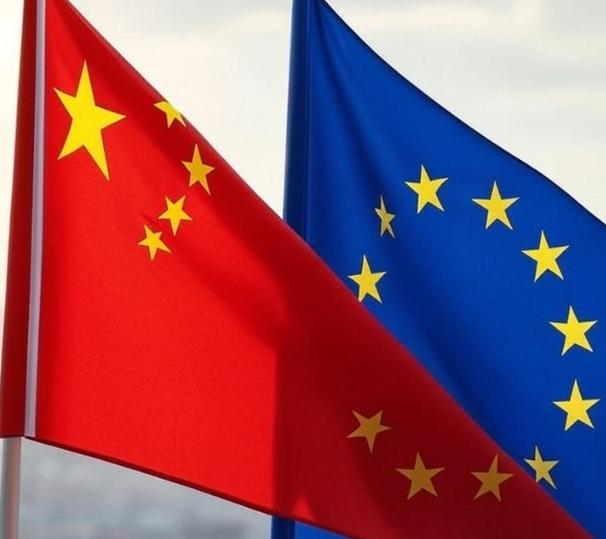China Agrees to Ease Rare Earth Exports to the European Union:In a significant move aimed at easing strained trade ties with Europe, China has agreed to expedite the export of rare earth minerals to European Union companies. The announcement follows high-level talks between China’s Minister of Commerce, Wang Wentao, and European Commissioner for Trade and Economic Security, Maroš Šefčovič, held in Paris this week.
China Agrees to Ease Rare Earth Exports to the European Union
In a significant move aimed at easing strained trade ties with Europe, China has agreed to expedite the export of rare earth minerals to European Union companies. The announcement follows high-level talks between China’s Minister of Commerce, Wang Wentao, and European Commissioner for Trade and Economic Security, Maroš Šefčovič, held in Paris this week.
During the discussions, China clarified its rare earth export control rules, emphasizing that these regulations are in line with common international standards. In a further step toward cooperation, Beijing proposed the establishment of a “green channel” to streamline and speed up the export process specifically for the EU.
Further Commerce Minister Wang Wentao further clarified China’s export control policies, emphasizing that such controls on rare earth and other items are in line with common international practices. China values the EU’s concerns and is willing to establish a green channel for eligible applications to accelerate approvals, while instructing working-level teams to maintain timely communication
The Chinese side acknowledged the EU’s concerns and expressed readiness to accelerate approval procedures through the proposed channel. This breakthrough marks a notable shift in China’s approach and signals progress in mending its fraught trade relationship with the European Union.
Beijing will fast-track licence approvals for qualified European companies’ rare earth and magnet shipments to alleviate supply-chain disruptions triggered by new export controls after U.S. tariffs. Backlog and timing remain concerns No specifics have been provided on eligibility or speed of approvals, and industry insiders warn that the existing licence backlog may still delay deliveries in the short to medium term.
EU seeks durable, differentiated solution: While Brussels welcomes the announcement, Trade Commissioner Šefčovič is pressing for a systemic, longer-term framework that distinguishes civilian-use from dual-use products and ensures transparency.
Earlier in April, China had announced a suspension of exports of a wide range of rare earth materials and related magnets. The decision triggered significant disruptions across global supply chains, particularly affecting sectors such as automobile manufacturing, aerospace, semiconductors, and defense contracting. These industries rely heavily on rare earths for the production of advanced technologies and systems.
Rare earth minerals are a key geopolitical and economic lever for China. The country accounts for approximately 70% of global rare earth mineral production and processes nearly 90% of the world’s supply. Its control is most dominant in seven specific rare earth elements, which have seen almost no exports since early April.
In a parallel development, China had previously agreed to ease rare earth exports to the United States, indicating a broader shift in its trade strategy amid increasing global pressure.
While the current move aims to reassure the EU and stabilize critical supply chains, it also reflects Beijing’s strategic balancing act—leveraging its rare earth dominance without triggering long-term backlash from key global partners.
The rare earth discussions are part of a wider diplomatic effort, with further talks anticipated between global leaders to ensure continued access to these crucial materials while addressing supply chain vulnerabilities.
Disclaimer:
The information presented in this article is based on publicly available news reports, diplomatic statements, and trade updates as of the date of publication. While every effort has been made to ensure accuracy, the situation involving rare earth exports, international trade negotiations, and diplomatic relations is dynamic and subject to rapid change.
The views expressed do not constitute investment advice, policy endorsement, or any official position of any government or organization. Readers are advised to consult official sources and conduct their own due diligence before making any decisions based on the content of this article. Neither the author nor the blog assumes any responsibility for actions taken based on this information.

